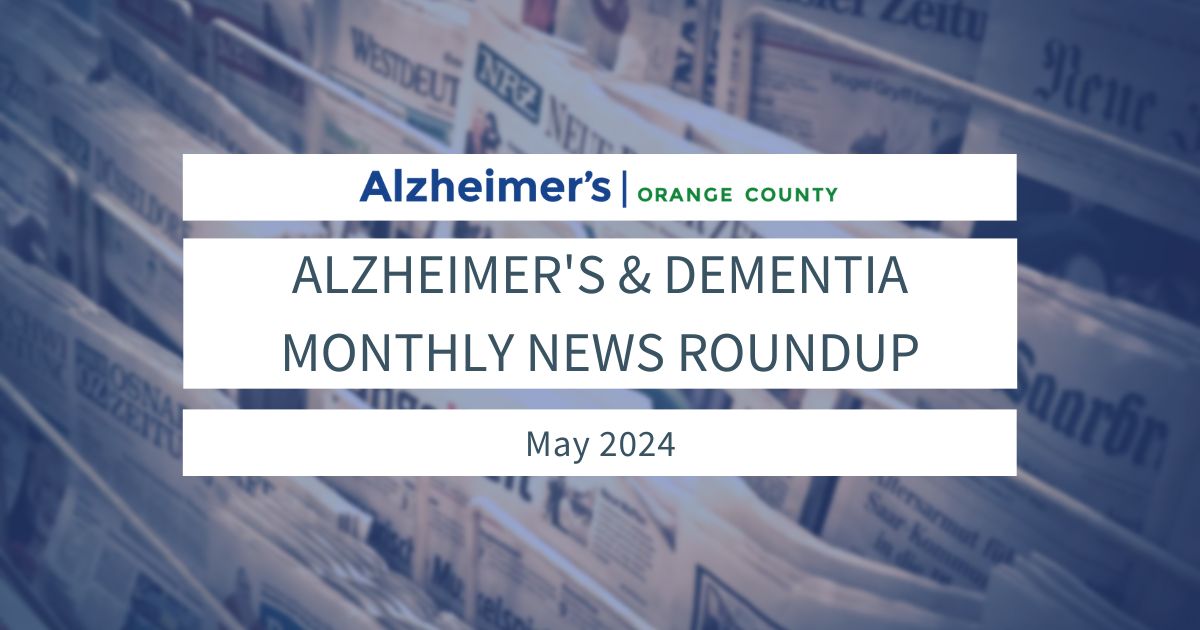A monthly recap of the latest news about Alzheimer’s and dementia
Mediterranean staple may lower your risk of death from dementia, study finds
A daily spoonful of olive oil could lower your risk of dying from dementia, according to a new study by Harvard scientists. Read more.
Study defines major genetic form of Alzheimer’s disease
A small portion of early-onset Alzheimer’s disease cases are known to be genetically determined. Read more.
Increased staffing may only be part of improved care for nursing home residents with dementia
Higher nursing home staff levels may have a positive effect on health outcomes for residents with Alzheimer’s disease or a related dementia, but substantially improving care quality may require additional measures. Read more.
Brain scans helped spot hidden forms of dementia in people with Alzheimer’s
Certain cerebral structures seen on brain scans may signify whether the thinking and memory problems a person with Alzheimer’s disease experiences are also due to other forms of dementia. Read more.
Older American Indians may experience higher levels of cognitive impairment than previously thought
Researchers have found that 54% of older American Indians have cognitive impairment, including 10% with dementia, highlighting a significant disparity with the rates of cognitive impairment and dementia in the general American population. Read more.
Digital speech analysis may provide earlier warning of frontotemporal degeneration
Recognizing early changes in speech may help identify people with genetic risk for frontotemporal degeneration (FTD) before they have symptoms, according to an NIA-funded study. Read more.
Computational models may predict need for nursing care among older adults with dementia
Using large, nationally representative data samples from NIA-funded sources, researchers have used computational modeling to predict the need for nursing home level of care in older adults who have dementia. Read more here.
Researchers map neural connections key to wakefulness in the human brain
An NIH-supported team of researchers has mapped the connectivity of a neural network they suggest is essential for wakefulness, or arousal, in the human brain. Read more.


